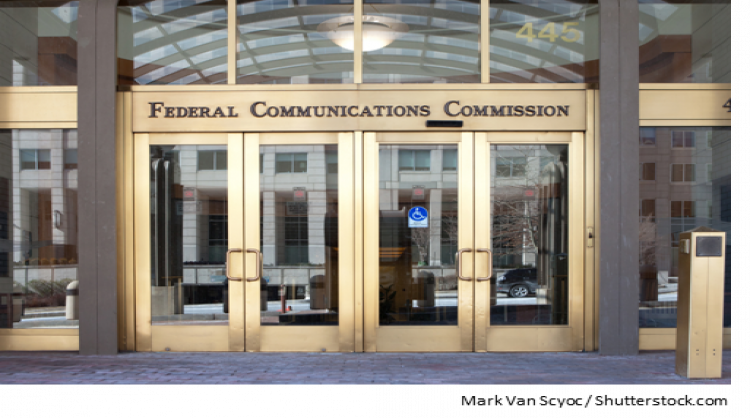The FCC Must Complete Toll-free 8YY Access Reform
June 2, 2017 | by Andrew Regitsky

 We turn our attention away from net neutrality for just a moment this week to discuss an issue that has been simmering since 2011 when the FCC began its terminating access transition to bill-and-keep, leaving the fate of originating access charges for another day. Unfortunately, in its zeal to reform the broken inter-carrier compensation system back then, the Commission reintroduced the originating/terminating access split for toll-free 8YY traffic. This access charge gap persists six years later, and has allowed traffic pumping arbitrage schemes to flourish. It needs be quickly addressed.
We turn our attention away from net neutrality for just a moment this week to discuss an issue that has been simmering since 2011 when the FCC began its terminating access transition to bill-and-keep, leaving the fate of originating access charges for another day. Unfortunately, in its zeal to reform the broken inter-carrier compensation system back then, the Commission reintroduced the originating/terminating access split for toll-free 8YY traffic. This access charge gap persists six years later, and has allowed traffic pumping arbitrage schemes to flourish. It needs be quickly addressed.
The Ad Hoc Telecommunications Users Bureau explained the 8YY access problem in a May 19, 2017 ex parte filing with the FCC.
- Access charges for 8YY (toll free) calls present unique issues because the customer of toll free service is not the caller.
- Callers are at the originating (“open”) end of the call
- Customers are at the terminating (“closed”) end of the call
- The payor cannot pick the provider of the originating access
- The FCC’s historic solution: treat toll free originating minutes like “sent paid” terminating minutes
- Ad Hoc’s position then (and now): continue to treat toll free originating minutes the same as “sent paid” terminating minutes, per the Commission’s practice for the previous 25 years. (Docket, 10-90, May 19, 2017 Ad Hoc filing, p. 2).
As Ad Hoc noted, ILECs had been charging terminating access charges to 8YY calls since 1986 when the FCC began treating originating and terminating access minutes separately for pricing purposes. However, when the Commission eliminated the Carrier Common Line (CCL) charge in its 2000 CALLS Order, it eliminated any distinction between originating and terminating access minutes and the 8YY issue evaporated.
That condition continued until the 2011 Access Transformation Order when as terminating access charges began to decrease each year, originating access charges became comparatively higher and toll-free calls were once again charged originating access. This problem was recognized by the Commission in 2011, however, it chose to postpone a solution. Instead it sought industry comments on a proper situation in a Further Notice of Proposed Rulemaking (FNPRM):
Relatedly, we also seek comment on the appropriate treatment of 8YY originated minutes. In the case of 8YY traffic, the role of the originating LEC is more akin to the traditional role of the terminating LEC in that the IXC carrying the 8YY traffic must use the access service of the LEC subscribed to by the calling party. Stated differently, in the case of 8YY traffic, because the calling party chooses the access provider but does not pay for the toll call, it has no incentive to select a provider with lower originating access rates. For this reason, we ask parties to address whether we should distinguish between originating access reform for 8YY traffic and originating access reform more generally. (WC Docket Nos. 10-90, 07-135, 05-337, 03-109, CC Docket Nos. 01-92, 96-45, GN Docket No. 09-51, Report and Order and Further Notice of Proposed Rulemaking, FCC No.11-161, November 18, 2011 at para. 1303).
The failure to address the 8YY issue immediately has enabled some carriers to participate in arbitrage schemes to take advantage of the situation, a problem that was exacerbated by the Commission’s failure to regulate database query charges.
Back in 2012, Verizon noted in its FNPRM comments, “It is also necessary to start phasing out originating access charges quickly to cut off new arbitrage schemes that are proliferating with toll-free traffic. Verizon is already seeing inflated invoices for 8YY database dip charges, involving similar scenarios to terminating access charge traffic pumping.”
This problem was amplified by AT&T in its 2016 Petition For Forbearance in Docket 16-363.
[T]he Commission should forbear from its rules allowing LECs to assess per query database dip charges on toll-free calls….These tariffed database query charges, which are not covered by the Commission's existing transition to bill-and-keep or its benchmark rules for CLEC access charges, vary substantially among LECs, and many query charges for tollfree database dips are priced well above the rates that prevail in the wholesale market for query charges. Forbearance from rules that allow and encourage such charges in tariffs is consistent with the Commission's existing approach to intercarrier compensation, which "rejects the notion" that only one party to a call "benefits from [the] call and therefore should bear the entire cost of originating, transporting, and terminating a call." Eliminating these per query charges will also eliminate an implicit subsidy and, by subjecting the costs of these queries to market discipline, will ultimately reduce charges to consumers. (Docket 16-363, AT&T Petition For Forbearance, filed September 30, 2016, at p. 4).
Since it becomes more unlikely each day that the Commission will reduce originating access charges to bill-and-keep, it would be well advised to address the most egregious areas of arbitrage that still exist under the current rules. This would include requiring carriers to assess terminating access charges on 8YY calls and finally addressing the per query charges that are not subject to bill-and-keep or any apparent market discipline.
By Andy Regitsky, CCMI

